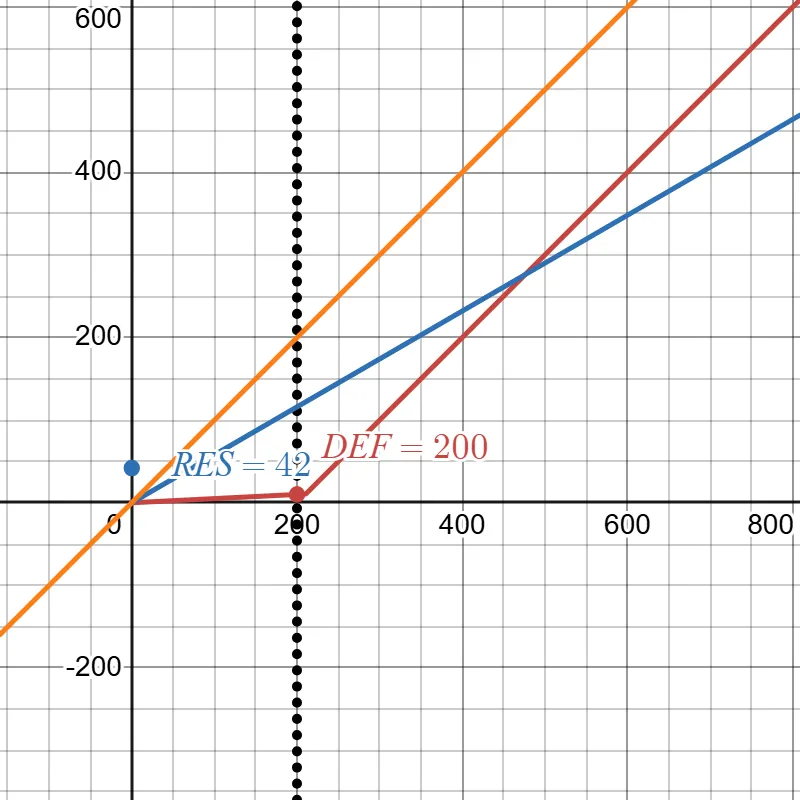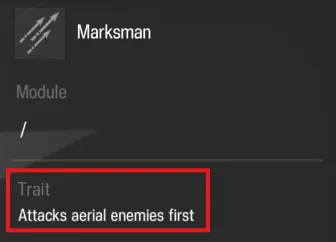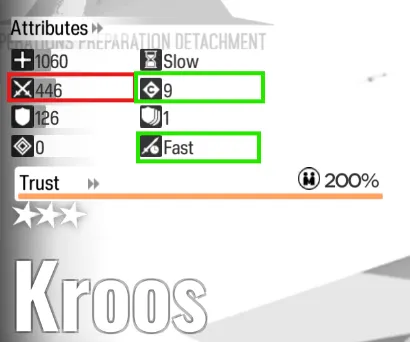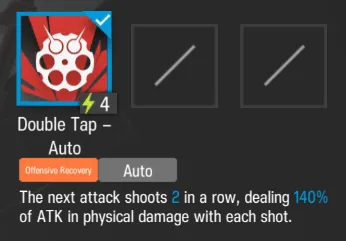Damage in Arknights
Arknights is a really cool game.
It's probably one of the very few gacha games I've played that does not rely on some arbitrary damage multiplier to force teambuilding. By "arbitrary damage multiplier," I mean damage can be classified by different "types" that each enemy take more or less damage to depending on an arbitrary table of damage multipliers to "types" of damage.
This isn't necessarily bad on its own, but it creates this culture of units where unit design decisions can be carbon-copied with a different damage type slapped onto them. It also acts like an escape hatch for the developers of these games. Want to nerf this particularly good team comp for X damage type? Just make all enemies in following content take less damage to it. Nobody can complain because it's a "mechanic."

Suspicious that this new defense type for a raid boss gets released after S.Hoshino has been dominating Explosive-type raids for 6-8 months now.
Some background knowledge to set your head in the right space for the rest of this post: Arknights is a tower-defense RPG gacha game. Many enemies come at predetermined times of the stage and approach your protection points. Your towers, a.k.a. Operators are the units you pull and are the ones responsible for defeating them.
Damage
With me complaining so much about damage affinities, it wouldn't be surprising to hear that Arknights has only three damage types: Physical, Arts, and True damage. Each enemy has their own number that determines how the incoming damage for each type is modified, but what makes it interesting is that Physical Defense, or DEF, is a flat modifier to incoming damage. That is to say that each instance of Physical damage actually does damage determined by the following formula:
Arts Defense, or RES, is a percentage modifier not unlike the damage multipliers I was complaining about. Higher RES means less damage taken.
True Defense does not exist.
Note: Arknights also has a "scratch damage clause" for incoming damage. Effectively, if any instance of damage would deal less than 5% of the original damage value, it deals 5% of the original damage value. Of course, some operators also interact with this mechanic.
The Physical damage line, the red line, stays flat until the incoming damage overcomes the DEF stat of the enemy. After that threshold, every additional point of Physical damage is taken effectively as true damage. This does not work the same as the Arts damage line, the blue line, that consistently rises. No matter how high that instance of damage gets, every additional point of damage is reduced by the enemy's RES. The yellow line is True damage and works as a control for easier visuals.

Hint: Click the image to go to an interactive version of this graph where you can freely mess with the numbers.
As of writing, there is also "Elemental damage" which has its own Elemental RES stat. But currently all enemies in the game have 0 Elemental RES so I might come back later when it is no longer effectively True damage.
These 3 damage types are calculated differently, meaning that +1 point of incoming Arts damage is not made equally to +1 point of incoming Physical damage. This is most obvious when dealing with enemies with low ATK but brutally fast attack speed. Cumulatively they deal a ludicrous amount of Physical damage but each instance of damage is reduced to its absolute minimum on operators with even slightly decent DEF stats.
Archetypes
Each player unit, or operator in Arknights has an archetype that determines a basic set of strengths and weaknesses for the operator kit to build off of. The classic example of this is the Marksman archetype.

Each archetype in Arknights gets a "trait" that functions like an extra passive ability that rigidly determines their strengths and weaknesses. For Marksman, that is they "prioritize targeting aerial enemies." However, the Marksman class is also characterized by having low cost, and high attack speed, but also low ATK.

Each unit in each archetype is also expected to play into the strengths of that archetype. For example, Kroos' skill lets her shoot twice in a row every 4 shots. Her effective attack speed is now increased, allowing her to deal more damage to lower DEF enemies.

Often, units in Arknights aren't bad because they can't keep up with the rest of the operators, but because they fail to play into the strengths of their designated archetype. Leto is not bad because she does only okay damage at a range, but because her kit does not take advantage of the Lord's ranged attacks (like Ayerscarpe or Lappland) or generalist stat spread (like SilverAsh or Thorns). Granted, this is because Leto is a 5* and can only carry so many skills or talents, and Hypergryph thought thematic faction interactions was better than just making her a decent unit.
It's actually really hard to find a completely terribly designed unit that isn't caused by external factors like design space limitations (though this does not excuse their design). "There are no bad operators, just bad mindsets."
Arknights archetypes also have what I'd like to call "secondary characteristics" that aren't necessarily intrinsic design decisions of the class, but many operators that occupy the archetype share this characteristic.
I think BloopAK says it best in his Why I love Hoederer, but I don't love Ulpianus (As a Crusher fan) video: Crushers aren't determined by their potent crowd-control infliction, but it often comes with the archetype; currently, all 4 Crushers in the game have Stun on at least one of their skills or talents. Therefore, when a new Crusher releases I expect their kit to integrate some sort of Stun.
You could make the argument that the stat spread of Marksman is just like Crusher stun; just a common characteristic across all members of the archetype that can be broken at any time. But stat spreads have been consistent since the conception of Arknights, so I trust Hypergryph to not overstep their bounds on stat spreads for these operators.
Well, Hypergryph did give an auto recovery skill to a member of an archetype characterized by only having offensive recovery skills, so at this point I've been cautious.
Tying it Together
This finally brings me to Casters, which are the only source of consistent off-skill Arts damage in the game. This is what makes RES interesting compared to other gacha games using basic affinity tables: only a small selection of operators deal Arts damage, and even less deal consistent off-skill Arts damage.
This turns Arts damage into a very intricate teambuilding question. For example, there is a high DEF enemy I need to take care of.
- Do I want to bring someone that deals Arts damage on-skill?
- Many operators can deal pretty considerable amounts of Arts damage on-skill, specifically from archetypes like Lords.
- Am I already bringing a healer? I might be able to bring an Incantation medic instead that deals low, but a respectable amount of Arts damage.
- There's an entire archetype dedicated to "defenders that deal Arts damage on skill."
- Do I need more consistent Arts damage that I'd only find in a Caster?
- Arts damage is a luxury, so these operators tend to be more expensive-to-deploy than your physical damage ones. Blast Casters are some of the most expensive operators in the game.
- Maybe I need a melee arts dealer. Arts Fighters fulfill this demand with lower stats and higher cost, if I'm willing to take the exchange.
- Do I not need Arts damage at all and can deal with the enemy with high Physical damage per hit instead?
- The enemy might have high DEF, but I might have operators that can still do considerable damage through it on-skill.
- If I really need something heavy that can also do good damage off-skill, Beseigers are an entire archetype of snipers that focus on taking down heavy, high DEF threats without a single drop of Arts.
- A decent selection of operators can apply DEF debuffs. Very few operators can apply RES debuffs.
- Can I just block the enemy or stop its movement with crowd-control effects while I chip away at its health?
- Enemies with low ATK and negligible skills are susceptible to stall, regardless of how huge their effective HP is. Often used in low-rarity clears where deployment slots need to be used to handle high danger enemies.
- Ceremoniously called "stall strats," but it isn't intended as a negative connotation. If you can deal with an enemy like this, why not?
- Do I just bring True damage to solve the problem?
- True damage deals whatever comes in. To compensate, the operators that do have access to this extremely rare damage type often do lower damage numbers.
- Out of 300~ operators, only Weedy, Skalter, Nightmare, Nealter, Mlynar, Kal'tsit, Hoederer, Cliffheart, Civilight Eterna, and Amiya can use True damage as of writing. Because the selection is very small, bringing True damage into a stage is very committal and often takes up an extra deployment slot.
Punished Casters
The nature of live-service games affects Arknights disproportionately than other games. When new releases shake up meta in those games, its often localized to the damage type, unless it's some kind of support applicable to all damage types (those are the meta units you should be pulling for).
Arknights has a reverse problem. When new units shake up the meta, it is very often high Physical damage-per-hit DPS units, while even amazing supporters often get hit by the classic "just play better and you won't need that extra deployment slot." This also means Arts damage tends to be a lot less valuable, hence the name "Punished Casters."
These are both problems worth discussion, but I prefer this over the frustrating arbitrary limitations of affinity tables in other gacha games, even though the former offers better protection against powercreep. Sure, some crazy unit powercreeps some other unit that deals Explosive damage in such a way that not using the unit if you have it is trolling, but the damage the new unit deals is localized only to the "Explosive" meta. In Arknights, massive, high Physical damage-per-hit have been releasing since Ch'en the Holungday, each one providing a way to explode enemies, bypassing any need for Arts damage or crowd-control except in extreme situations like 1P Relay or high/max risk CC.
But in Arknights I also feel comfortable with simply not using these operators (linked is my Ban List). This is not something I feel in other gacha games because all "story" content is braindead easy regardless of what units you have, and all "challenge" content demands your best units. Problems that Hypergryph offers in the form of enemies and special mechanics often have many solutions, all of them intricate and interacting with your operators in unique and amazing ways. I still think the most amazing thing I have ever learned about Arknights was that Ch'en's S3 has an untargetability property that effectively makes her invulnerable, making her particularly useful to burst enemies down with annoying HP threshold abilities, specifically the Pursuer which is often regarded as one of the hardest event/story bosses in Arknights.
I really don't think these arbitrary damage multipliers should be the standard for these kinds of RPGs. Hypergryph has been managing powercreep very well, and though they come out with some nuclear units every now and then, it doesn't bring down the quality of the whole game. This might only be an affordance only the gameplay of Arknights is capable of, but hopefully that possibility speaks well to why I love it so much.